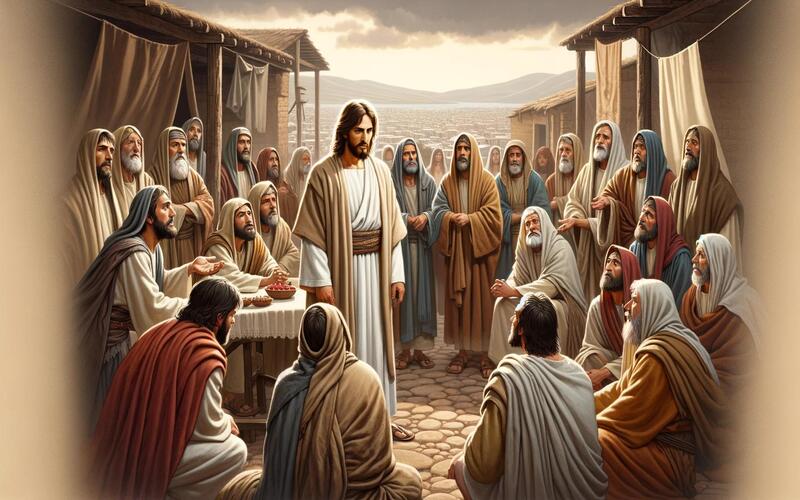Who is the Greatest?

In the quiet hours of an ordinary day, a scene unfolds that captures the essence of an extraordinary truth. A young woman, her life a multitude of trials, kneels beside a homeless man on a bustling city street. With gentle hands, she offers him food and water, her eyes meeting his with a compassion that speaks volumes. This moment, unnoticed by many, is a vivid portrayal of service's pure, unadorned beauty. It's in these acts of selflessness, often hidden from the public eye, where we find the true measure of greatness as Jesus taught us.
In the heart of the Gospel of Mark, chapter 9, verses 30 to 37, lies a profound, counterintuitive message from Jesus. As He and His disciples traverse the paths of Galilee, Jesus imparts a lesson that would forever invert the world's understanding of greatness. He speaks of His impending betrayal and resurrection, enveloping His fate in a narrative of self-sacrifice and service. Yet, it is His interaction with a child that illuminates His teaching most brightly. Jesus embraces a child, the lowest in societal hierarchy, and places him among His followers, declaring, "Whoever welcomes one of these little children in my name welcomes me; and whoever welcomes me does not welcome me but the one who sent me."
This act is not merely a lesson in hospitality but a radical declaration of where true greatness lies—not in dominion or accolades but in humility, service, and a willingness to uplift the most marginalised among us. Jesus positions the act of welcoming, of serving the least, as the highest form of greatness, a divine inversion of the world's power dynamics.
The beauty and drama of Jesus' teaching lie in its simplicity and its demand for a complete, internal transformation. To welcome a child is to welcome the divine; to serve the least is to serve God Himself. This message challenges the bedrock of societal norms, where greatness is often measured by one's ability to rise above others, to accumulate wealth, status, and power. Yet, here stands Jesus, affirming that true elevation comes from bending low, from extending hands not to receive but to give, not to be served but to serve.
The story of the young woman and the homeless man, a modern-day parable, echoes Jesus' teaching. It reminds us that in every act of kindness, in every moment of genuine service, we encounter the divine. These acts of service, however small they may appear, contribute to a greater force of kindness that mends and transforms the world's fractures.
As we reflect on Jesus' words in Mark 9, let us be amazed by the beauty of His upside-down kingdom, where greatness is redefined, and love is the currency of true power. Let this understanding not just dwell in our minds but move our hands and hearts to act, to serve, and to uplift those around us. In doing so, we step into the light of Jesus' radical truth, becoming beacons of hope and vessels of His endless grace in a world desperate for both.


